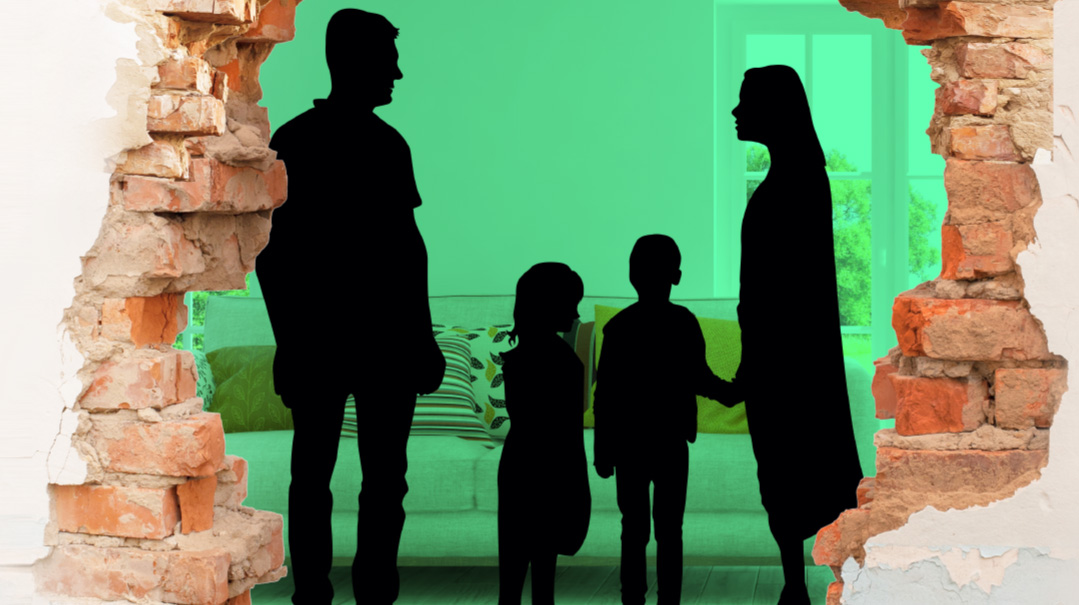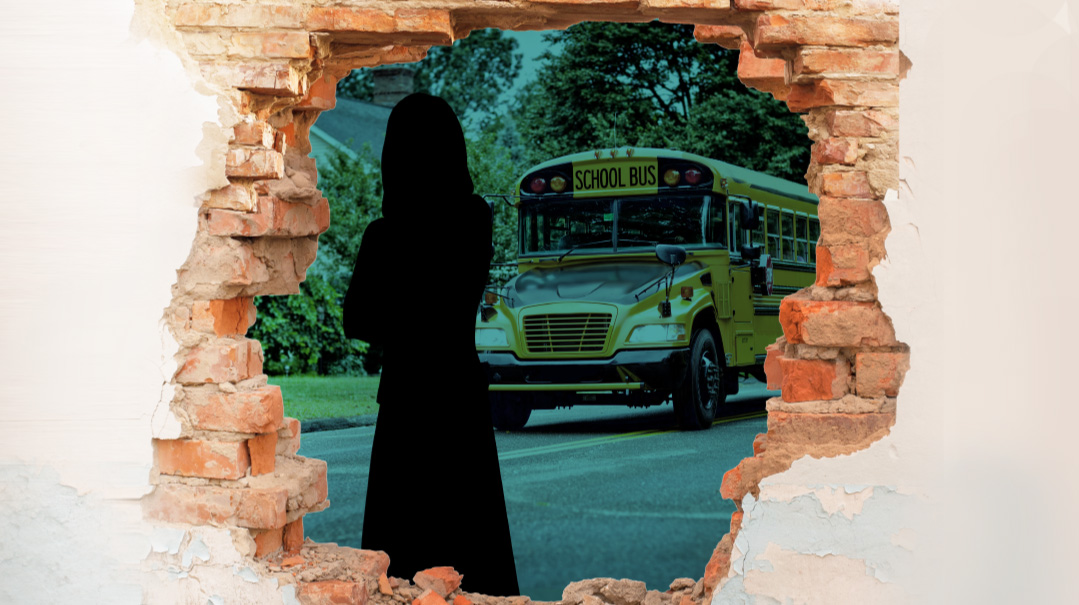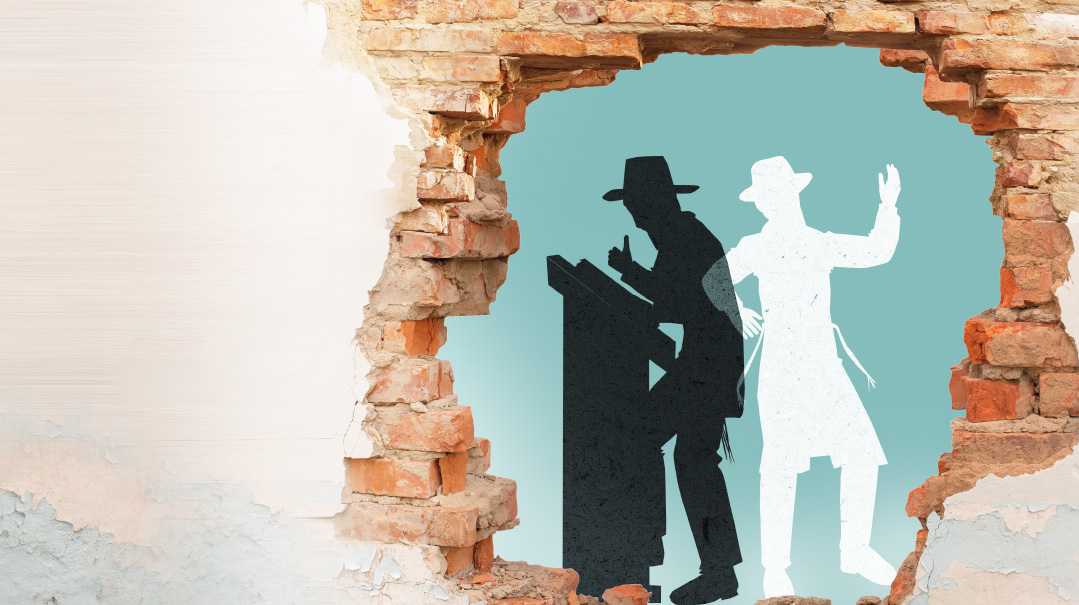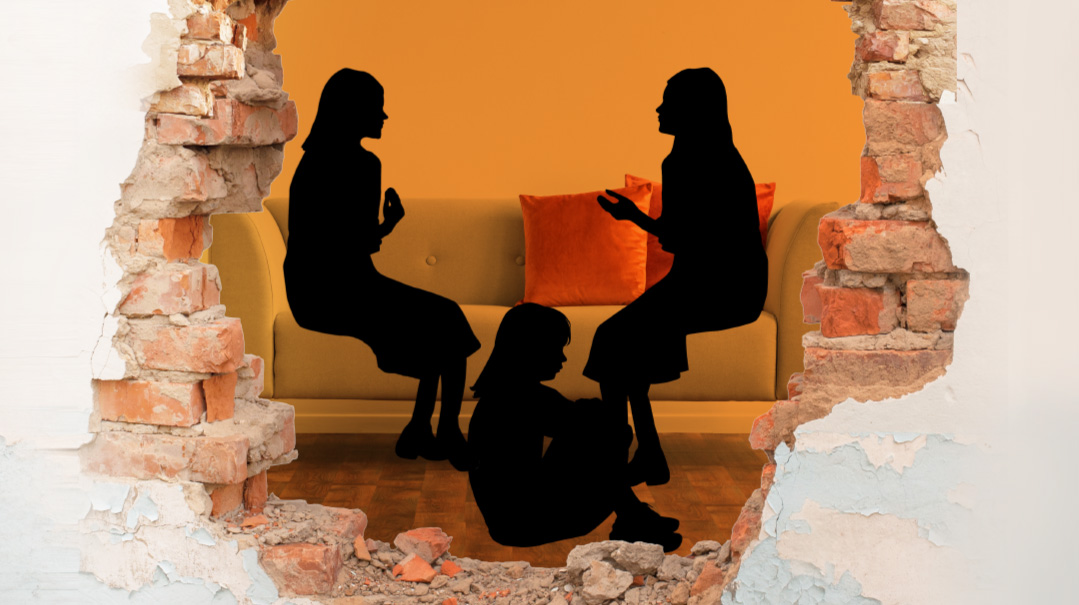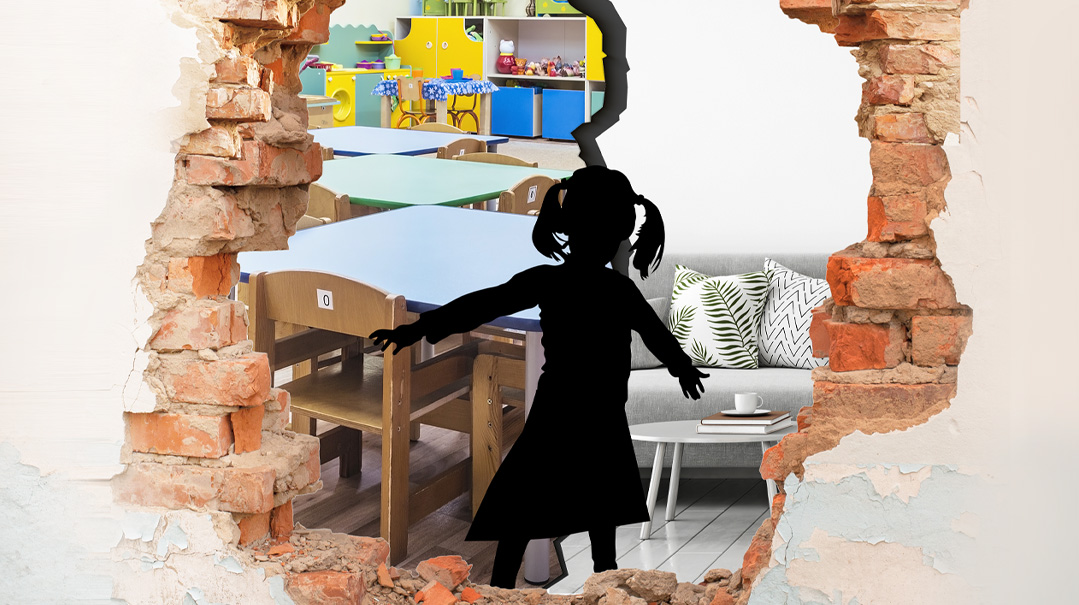I’m Bad at Saying No; How Do I Teach It to My Children?

Our goal as parents is to provide opportunities for our children to choose their personal balance
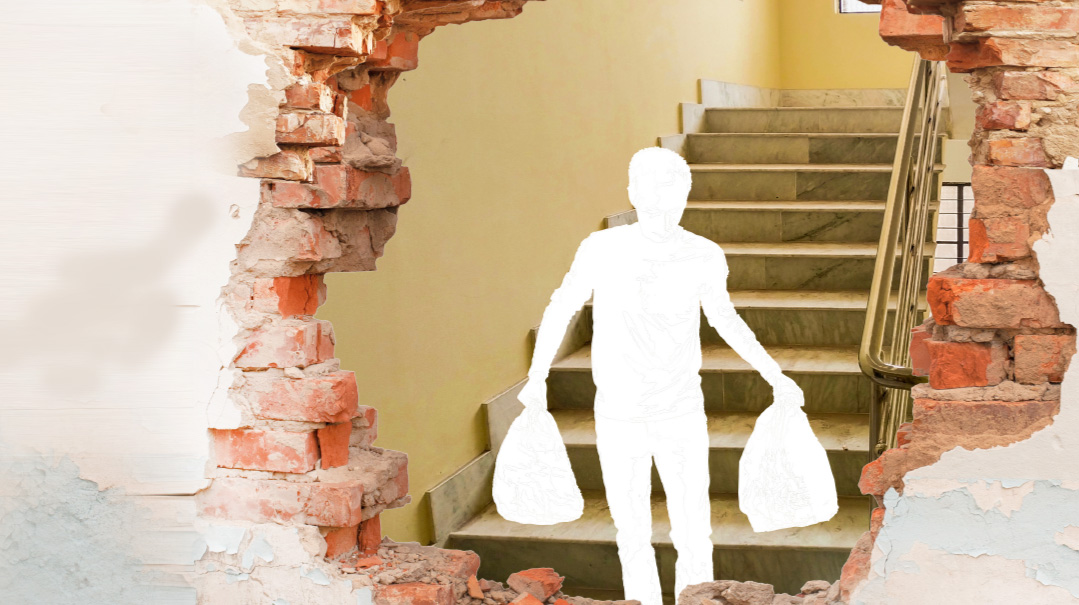
Moderated by Faigy Peritzman
We live in an apartment building, and there are two other apartments on our floor. One is occupied by an elderly widow and the other by a couple in their mid-forties who have two very young children, plus a bunch of teenagers from their previous marriages.
I often ask my ten- and eleven-year-old sons to help the widow take out her garbage and carry up her groceries. I have two goals with this: first, to assist her, and second, to teach my children the concept of chesed and to develop their generosity “muscles.”
Yet often, I find myself in a quandary with both these reasons. Last Erev Shabbos, my other neighbor knocked on our door not long before Shabbos, when my sons were in the middle of their chores. He said he’s going away for Shabbos and, because it’s so hot, asked if my boys could help him carry his suitcases and other paraphernalia to the car.
When my sons came back from helping him, they commented that he often asks them to take out the garbage, or carry something up to an upstairs neighbor so he doesn’t have to walk up the stairs. My seven-year-old daughter piped in that he’d asked her to carry something the other day and it had been very heavy and hard for her.
There’s something about my neighbor’s behavior that makes me very uncomfortable. He seems like a strong, able-bodied man and doesn’t need the help, rather he’s being lazy, and is taking advantage of my children by getting them to do his dirty work.
I personally have great difficulty asking for help and saying no to people, so I feel I can’t assess what the right approach to this should be. I don’t want my children to learn to harden their hearts by refusing to assist someone, and I don’t want to teach them chutzpah by encouraging them to say “no” when an adult makes a request of them. On the other hand, I think it’s very important for their well-being that they don’t become shmattehs, and should be able to discern when they’re helping someone in need and when they’re enabling someone’s flaws. Any guidance would be much appreciated.
Rabbi Avishai David is the rosh yeshivah of Yeshivas Toras Shraga in Yerushalayim as well as the Rav of Beis Knesses Beis Tefilah Yona Avrohom in Ramat Beit Shemesh Alef.
You’re expressing a fundamental Torah principle. The overriding goal of a Torah lifestyle is to incorporate chesed into our lives. Chazal tell us that the Torah begins with chesed and ends with chesed — opening with Hashem clothing Adam and Chavah, and closing with Hashem burying Moshe Rabbeinu.
The Gemara in Sotah tells us, “Ma hu, af atah — just as He is, you should be.” We have an obligation to emulate Hashem, and we should try to do chesed, just as He does.
Your overarching goal of instilling the middah of chesed within your children is excellent. It’s always better to err on the side of chesed. Even if it’s not the ideal balance, you’re never going to lose out.
On the other hand, I’ve been involved in the world of chinuch and rabbanus for over 48 years, and I understand your dilemma. We don’t want our children to be exploited. We want to instill in them a sense of fair play and the ability to make nuanced decisions distinguishing between those who are and aren’t worthy of being recipients of our chesed.
Let’s take a look at two examples the Torah gives us in doing chesed. In both parshas Mishpatim (Shemos 23:5) and in parshas Ki Seitzei (Devarim 22:4), the Torah discusses what to do when you come across a man with a loaded donkey. The example in parshas Mishpatim describes the donkey being so overloaded that it falls, and in parshas Ki Seitzei, the load falls off. In both cases, the Torah says you must help, imo — with him. Rashi points out that the obligation to help this man applies only if the owner participates in the work. If he sits back and watches you work, that’s unconscionable, and you’re not obligated to assist.
Suppose you meet two fellows, each with a donkey. One needs help with loading up the donkey and the other needs help unloading a too-heavy load from the donkey. The unloading should take precedence as it’s causing tzaar baalei chayim.
But suppose the one with the heavy load is a friend and the one whose load fell off is someone you don’t like. Who gets preference? Although normally the heavy load takes preference due to tzaar baalei chayim, in this case, we should first assist the man we don’t like, because it’s good for us to conquer our yetzer hara.
This concept is fundamental when discussing chesed. Often when it comes to chesed and tzedakah, our sense of ego gets involved. Right before the giving of the Aseres Hadibros (Devarim 5:5) it says, “I stood between Hashem and you.” The baalai mussar tell us we can understand these words to mean that the “I,” our ego, gets in the way of serving Hashem properly.
That’s why we have the concept of chesed shel emes. If it’s emes, if it’s an act based on integrity, then it’s the ideal chesed.
There isn’t one answer to this question. We can only explore the attitudes and understandings behind this fundamental art of chesed. The Rambam in Peirush Hamishnayos discusses how to measure tzedakah. Is it better to give a poor person one dollar or to give him 100 pennies over a period of time?
The Rambam answers it’s better to give 100 pennies. Why? Because the act of giving so many pennies transforms you into a more magnanimous person. And that, too, is the goal of chesed: to embed within our personality the middah of giving.
When faced with a dilemma regarding how to balance chinuch with chesed, we need to keep these pointers in mind. We want our children to become baalei chesed. Why is it called a baal chesed? Because once we’ve imbued these concepts and achieved the proper formula and balance, the person has acquired this middah of chesed, he now owns it. That’s what I wish you’re able to instill in your children.
Mrs. Shani Mendlowitz is the menaheles of Bais Yaakov Seminary of Montreal.
How wonderful it is that you’re being mechanech your children in gemilus chasadim. May this be the start of a lifelong commitment to maasim tovim for them and an eternal zechus for you!
My first piece of advice to you is not to overreact or be impulsive. I’ve found that when faced with delicate, uncertain situations, it’s best to be a curious observer before taking action.
First of all, how frequent are the neighbor’s requests?
Second, although he may look healthy, he may actually have an underlying health condition. Perhaps he usually asks your children for help when they’re going down the stairs anyway.
At the same time, I’ll admit there’s another reason I advise you to be an observer. When a child shares information about an outsider who approaches him often, the parent has to be wary and make sure there’s no form of any danger brewing. So, although I’m advising you not to overreact — and there probably is nothing terribly wrong — I urge you to be around, stay around, and look around.
In the meantime, what should you say to your children? In general, it’s not a good habit to stand in judgment of the people with whom we perform chesed, deciding how needy or deserving they are of our help.
Obviously, if faced with two people/causes who need our help simultaneously, we have to decide where to invest our efforts. But when there’s a single opportunity, chesed should be done without much suspicion and judgment, for two reasons: It’s often not possible to discern exactly how much the person really needs us, and it’s also not good for our own middos and interpersonal relationships to get into the habit of second-guessing or judging. (Of course, I’m not referring to blatant cases of misrepresentation.)
In most cases, why shouldn’t we help someone? What, exactly, are we losing? Consider how very much we’re gaining.
Particularly with regard to children, we want to be machanech them to be eager to lend a hand, to look for chesed opportunities, without being judgmental and critical of others. While it’s true that an adult may grapple with choosing between two causes, or the complex issues of enablers and codependents, a young child doesn’t have the sophistication to understand enabling, and usually isn’t faced with that issue. It seems overly dramatic to assume that children are enabling an adult by carrying some packages up and down the steps.
That said, I think you should keep things simple. Validate their feelings when necessary and — unless you discover a truly unhealthy dynamic — encourage your children to continue helping both your neighbors. It’s unlikely that they’ll become “shmattehs,” and they certainly aren’t “enabling his flaws.” In the case of your daughter, tell her to speak up respectfully if the package is too heavy. He probably didn’t realize what it was like for her.
Let’s remember that Hashem, in Whose ways we must follow, is the Ultimate Giver. The Ramchal writes that Hashem actually created the world l’heitiv, in order that there be creations to whom He can give. Thus, the purest form of chesed is creative rather than responsive, to give regardless of the status of the recipient.
May HaKadosh Baruch Hu give you continued hatzlachah and brachah in raising your wonderful children.
Menachem Bernfeld has a master’s in education and is a certified life coach. He’s host of the “Let’s Get Real with Coach Menachem,” a Sunday night live interactive Zoom program, and also offers private sessions.
The best way to educate our children to do chesed, or any other positive behavior, is by modeling that behavior ourselves. The main focus here shouldn’t be on which neighbor to help, but on you yourself. If you’re always offering assistance to your widowed neighbor, then your children will pick up on the importance of this chesed and will want to do it as well.
However, if a parent is mechanech by simply telling the child: “It’s a big chesed to help this almanah, go take out her garbage, etc.,” she runs the risk of her children resenting this chesed instead of choosing it, thus sabotaging her efforts.
It’s essential for children to understand the concept of healthy balance when choosing whether or not to do a specific chesed. In this case, the question isn’t whether or not to help the almanah and/or the stronger neighbor, but whether to do chesed at all and when to choose not to. You write that it’s hard for you to say no when people ask you for help. Your children may sense that pressure and feel trapped by it, viewing all chasadim as absolute obligations rather than optional assistance.
Proper balance when it comes to chesed means realizing that whenever we say “yes” to a chesed, we’re saying “no” somewhere else. For example, if I say “yes” to run out to the grocery for a neighbor who’s unwell, I’m also saying “no” to my family members who may be home at that time and won’t have access to me when I leave. Any decision is always a balancing act of where my “yes” is most needed versus where my “no” will hurt more.
In general, we find it easier to say “no” to our own family members rather than say “no” to an outsider. But that may be a skewed attitude toward chesed as well.
Our goal as parents is to provide opportunities for our children to choose their personal balance. This way, seeing you help an almanah gives them the option to offer their own assistance next time there’s an opportunity to help someone. If they choose not to help out, it may not be what you ideally wanted them to choose, but it’s still a chinuch moment as they utilize their option for choice.
(Originally featured in Family First, Issue 786)
Oops! We could not locate your form.







